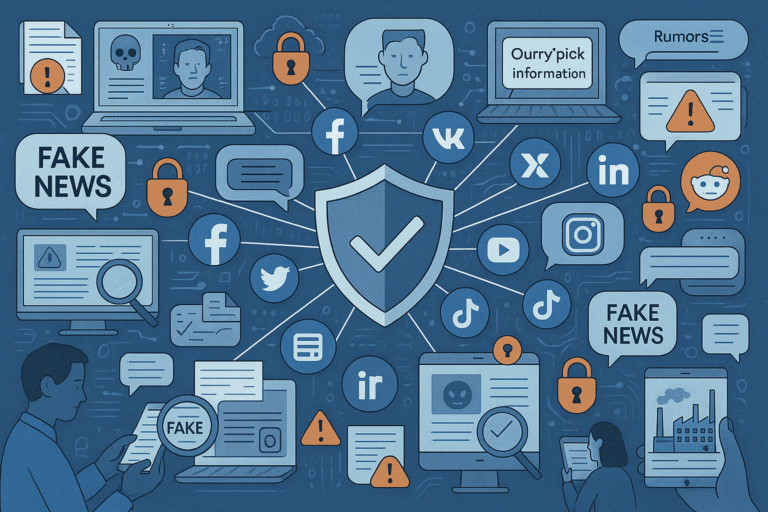The global spread of social media has made it very easy for brands and companies to connect with their customers.
Unfortunately, there are drawbacks to this technological development. The rise of GenAI has made it easier than ever for bad actors to spread disinformation and fake news with the intent to cause significant harm to companies and brands.

Bots are commonly used to amplify disinformation and fake news on social media. These automated accounts can generate a high volume of posts, creating an illusion of widespread public opinion.
This makes monitoring social media discussions more important than ever for companies and brands.
The Importance of Social Listening
Understanding customer sentiment through social listening helps brands make informed decisions and tailor their strategies to meet customer expectations.
Furthermore, it allows for early detection of disinformation campaigns by actively monitoring social media platforms, enabling brands to address concerns before they escalate into viral phenomena.
Disinformation campaigns and fake news can severely damage a brand’s reputation. These deliberate efforts are orchestrated by bad actors with the intent to deceive the public.
One factor that makes these attacks particularly dangerous is the speed at which false narratives can gain traction on social media, misleading consumers and shareholders, and potentially causing long-term reputational harm.
The most common way bad actors do this is by fabricating stories about a brand’s product or services, or by impersonating brands through the creation of fake profiles.
We’ve witnessed numerous instances where brands have found themselves under attack by threat actors who latched onto trending topics and hashtags in an attempt to manipulate public perception.
One recent example is the Planet Fitness boycott, where 19% of profiles who engaged in this social media firestorm were proven to be fake.
To make matters worse, the very first mention of the boycott came from a fake account, highlighting how easy it is for bad actors to not only latch on to negative topics but initiate them as well.
Impersonating brands is another common method bad actors use to cause harm to companies.
In 2023, scammers created fake Facebook pages for airports around the world such as Auckland, Heathrow, and Changi, posting about non-existent luggage sales to deceive users into providing credit card information.
These pages garnered thousands of fake likes and comments in multiple languages to enhance their authenticity. Fake profiles interacted with the posts, offering detailed, convincing reviews to reinforce the scam’s legitimacy, tricking real users into falling for this elaborate scheme.
The Role of Authenticity

Not all brand mentions carry negative connotations, and they are not exclusively generated by bots and fake profiles.
Authentic brand mentions play a crucial role amidst the noise of disinformation and fake news on social media – they are a testament to a company’s relationship with its customers.
When customers share their experiences with a brand’s products or services, it not only reinforces the brand’s credibility but also helps to counteract the impact of threat actors’ disinformation campaigns.
Safeguarding Your Brand From Bad Actors
It’s highly important for companies to oversee both authentic brand mentions and false narratives spread by bad actors in order to protect their reputation.
The most efficient way to do this is by using advanced social media monitoring services, and Cyabra offers technology specifically designed to fulfill this crucial function.


